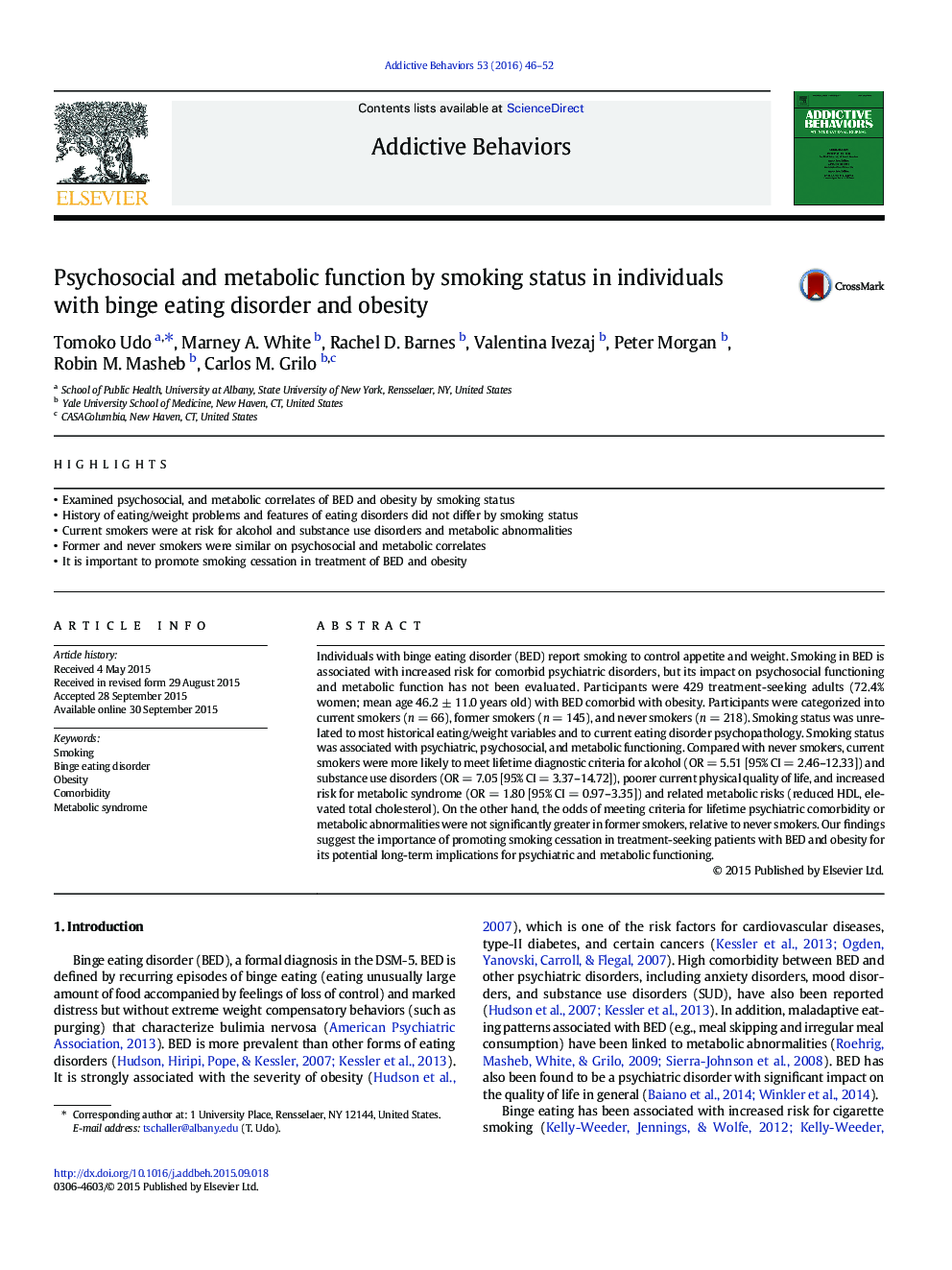| Article ID | Journal | Published Year | Pages | File Type |
|---|---|---|---|---|
| 7260397 | Addictive Behaviors | 2016 | 7 Pages |
Abstract
Individuals with binge eating disorder (BED) report smoking to control appetite and weight. Smoking in BED is associated with increased risk for comorbid psychiatric disorders, but its impact on psychosocial functioning and metabolic function has not been evaluated. Participants were 429 treatment-seeking adults (72.4% women; mean age 46.2 ± 11.0 years old) with BED comorbid with obesity. Participants were categorized into current smokers (n = 66), former smokers (n = 145), and never smokers (n = 218). Smoking status was unrelated to most historical eating/weight variables and to current eating disorder psychopathology. Smoking status was associated with psychiatric, psychosocial, and metabolic functioning. Compared with never smokers, current smokers were more likely to meet lifetime diagnostic criteria for alcohol (OR = 5.51 [95% CI = 2.46-12.33]) and substance use disorders (OR = 7.05 [95% CI = 3.37-14.72]), poorer current physical quality of life, and increased risk for metabolic syndrome (OR = 1.80 [95% CI = 0.97-3.35]) and related metabolic risks (reduced HDL, elevated total cholesterol). On the other hand, the odds of meeting criteria for lifetime psychiatric comorbidity or metabolic abnormalities were not significantly greater in former smokers, relative to never smokers. Our findings suggest the importance of promoting smoking cessation in treatment-seeking patients with BED and obesity for its potential long-term implications for psychiatric and metabolic functioning.
Related Topics
Life Sciences
Neuroscience
Behavioral Neuroscience
Authors
Tomoko Udo, Marney A. White, Rachel D. Barnes, Valentina Ivezaj, Peter Morgan, Robin M. Masheb, Carlos M. Grilo,
